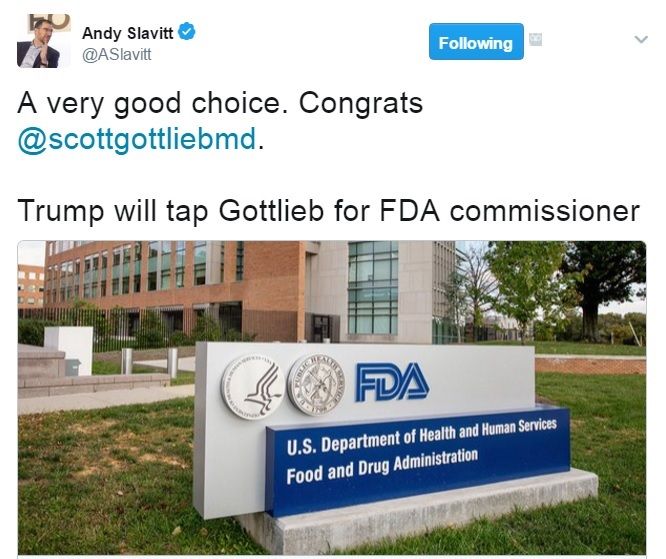- Center on Health Equity & Access
- Clinical
- Health Care Cost
- Health Care Delivery
- Insurance
- Policy
- Technology
- Value-Based Care
The Delicate Balance Needed to Lead the US FDA
Will Scott Gottlieb's pharma consulting experience be a boon in disguise for the FDA?
One of the most influential regulatory bodies with a significant global impact, the FDA’s jurisdiction can skew the economic balance in healthcare. Ideally, therefore, the person chosen to lead the FDA should have an in-depth understanding of the drug development process—from the pharmaceutical industry perspective as well as from a regulatory perspective.
Scott Gottlieb, MD, President Donald Trump’s nominee for FDA Commissioner, has worked for the HHS, consulted for pharmaceutical companies, and will be returning to the FDA, if confirmed. While critics have raised objections to his close ties with the pharmaceutical sector, others see it as insight that can help bring about positive changes within the FDA’s drug approval process.
In a letter sent to Elizabeth J. Fischmann, Esq, associate general counsel for ethics at the HHS, Gottlieb states that if appointed to the post, he will recuse himself for a period of 1 year from making any agency decisions for 20 healthcare companies with which he's had a professional tie.
Susan F. Wood, PhD, associate professor of health policy at the George Washington University School of Public Health and Health Services, who has previously served as director of the Office of Women’s Health at the FDA, said that recusal can be tricky for a commissioner who is that conflicted. “The questions is going to be, ‘are you going to have to rescue yourself from all the decisions that are going to have an impact on that company?’” Wood asked.
In his letter addressed to Fischmann, Gottlieb promises to divest his interests and avoid participating in making decisions that have a financial bearing on those entities in which he holds financial interests. The letter also states that Gottlieb and his immediate family “will not acquire any direct financial interest in entities listed on the FDA prohibited holdings list or in entities involved in industries that include healthcare.
Gottlieb's lawyer, Leslie B. Kiernan, said that typically, FDA commissioners are removed from matters involving individual companies, and that their key role is “to set broader policies for agency.”
The industry-friendly background on Gottlieb’s resume is appreciated by some. Joshua M. Sharfstein, MD, associate dean, Public Health Practice & Training, Johns Hopkins Bloomberg School of Public Health, believes Gottlieb has the capacity to grow into the role of Commissioner. Sharfstein was deputy commissioner at the FDA during the Obama administration. Tim Coetzee who leads advocacy efforts at the National Multiple Sclerosis Society would pick Gottlieb over “a leader who may have no conflicts because they have never been involved in the drug development process.” That, in his opinion, is not a sound approach.
In addition, 2 Obama appointees, former FDA Commissioner Robert Califf, MD, and former CMS acting administrator Andy Slavitt, both praised Gottlieb's nomination. Califf told The Hill that was "breathing a huge sigh of relief" when the appointment was announced. Slavitt responded via a tweet:

